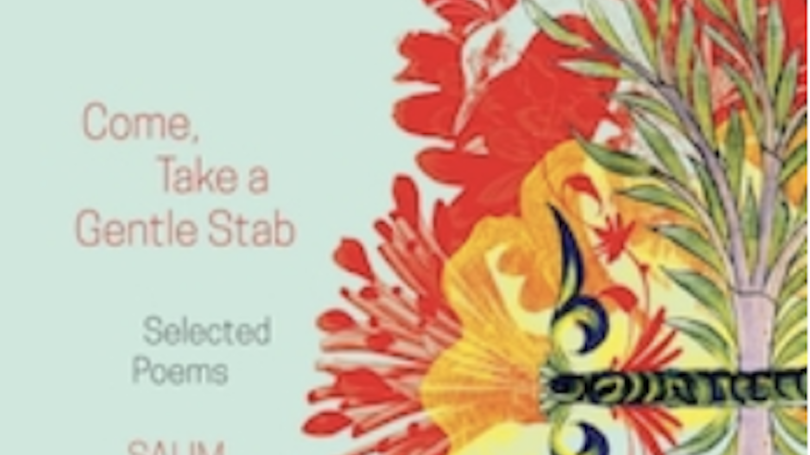
- Undergraduate
- Graduate
- News & Events
- People
Back to Top Nav
Back to Top Nav
Back to Top Nav
For the full article click on: Asymptote
In her acclaimed essay "The Master's Tools Will Never Dismantle the Master's House" (1984), Audre Lorde argues that "[survival] is learning how to take our differences and make them strengths." "For the master's tools," she adds, "will never dismantle the master's house. They may allow us temporarily to beat him at his own game, but they will never enable us to bring about genuine change."
Written in the context of feminism, Lorde's argument is that we must approach feminist questions intersectionally, to "deal with the differences between us [women]." What Lorde advocates for in the context of feminism, Syrian-Kurdish poet and novelist Salim Barakat (b. 1951) puts into practice, if obliquely, in the context of Arabic poetry and language. Woman is to Lorde what Arabic is to Barakat: if Lorde wants to expand the category of woman—which implicitly (read: normatively) means white cisgender woman—to include other perspectives from lesbian, Black, transgender women, and so on, Barakat wants to stretch Arabic poetry (and language) to include that which is not ethnically Arab—in his case, that would be the Kurdish. Operating under the umbrella of Arabic, Barakat "pacifically" (to borrow yasser elhariry's term) lays claim to Arabic poetry with Kurdish names, cultural references, geography, and topography.
When the packs of wolves descend from the north, dragging their asses through the snow, howling and setting the locked barns and throats of dogs ablaze, I hear Dinoka's death rattle.
This is an excerpt from "Come, Dinoka Breva, Take a Gentle Stab!" (1973), one of Barakat's first poems in Come, Take a Gentle Stab, a collection sampling his poetry from 1973 to 2019, sensitively translated from the Arabic into English, for the first time, by Huda J. Fakhreddine and Jayson Iwen and published by Seagull Books.
Yet, insofar as Barakat imbues Arabic poetry with Kurdish, his project of defamiliarizing Arabic poetry becomes a success only by pushing the Arabic language itself to its very limits. "Arabic is not his first language, but he defiantly plunders it and lays claim to it," Fakhreddine writes. "With his work," she adds, "Arabic readers are on the threshold of comprehension, exceedingly conscious of themselves as explorers of what has thus far eluded them."
Tom Abi Samra is currently an M.A. student of comparative literature at Dartmouth College. He earned his B.A. in literature and creative writing from New York University Abu Dhabi. His research interests include early modern Arabic literature, global early modern studies, travel literature, and critical theory.